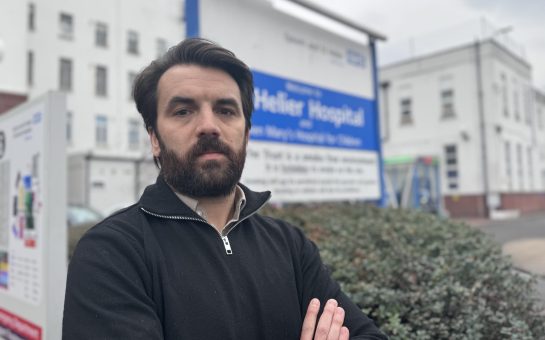In 2008, the United Nations declared 19th June World Sickle Cell Day in order to raise awareness of the inherited blood disorder that affects millions worldwide, and around 15,000 people in the UK.
Normal blood cells are rounded and carry vital oxygen around the body but with Sickle Cell disorder (SCD), they are a sickle shape which can mean blood vessels can end up blocked.
Known as a crisis, this causes extreme pain and swelling in the blockage area, eventually causing long-term damage to organs.
Issues regarding discrimination and lack of understanding of the disorder have recently been in the news, with the disappearance of 19-year-old student Richard Okorogheye, and the death of 21-year-old football analyst Evan Smith, who had to call 999 from his hospital bed during a crisis.
John James OBE, Sickle Cell Society UK CEO (SCSUK), claimed there is still a lack of awareness of the condition both within the NHS and in wider society even, though within London, SCD pain crisis’ are in the top 20 of all causes of emergency admissions.
He said: “There’s been a lack of innovation, a lack of research, a lack of funding, and that’s why SCSUK have no hesitation in saying that SCD doesn’t get the attention it deserves as the UK’s biggest genetic blood disorder.
“The good news for families and people who live with SCD, is that there are two new treatments being considered for approval.
“We still don’t know if they are going to be approved, but these will be the first new disease-modifying treatments for Sickle Cell in over 30 years.”
Dunstan Nicol-Wilson, NHS researcher & development manager, 28, who lives with Sickle Cell himself, told South West Londoner that his mother went into nursing to learn more about the disorder, and added how debilitating a crisis can be.
He said: “I can go from being able to smile and talking, to being in bed not able to move. If it’s in my arms I can’t cut food or carry things; if it’s in my legs I can’t walk.”
Nicol-Wilson also spoke of how in the past, he’d keep hospital admissions to himself.
However, things have changed and his friends are more aware.
He added: “My mission is to encourage the Black community to donate blood, and my friends have taken up the mantle after seeing how it affects me.”
Credit: Darryl Leja, National Human Genome Research Institute, National Institutes of Health via Flickr under CC BY-NC 2.0 licence





Join the discussion
[…] my story develops, my origins continue to define my future. I now speak more confidently and passionately about sickle cell. I am no longer ashamed to embrace it or hide a part of myself […]